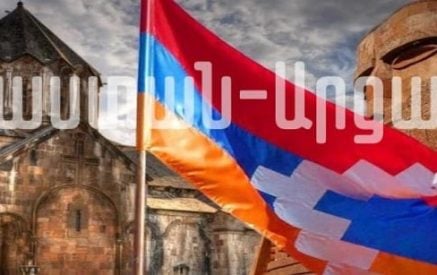ASSEMBLY’S STATEMENT ON THE 34TH ANNIVERSARY OF THE FIRST OF THE ARMENIAN POGROMS COMMITTED BY AZERBAIJAN
BAKU CONTINUES TO FUEL VIOLENCE BY SPREADING ANTI-ARMENIAN PROPAGANDA
Washington, D.C. – Today Armenians around the world commemorate the 34th anniversary of the Sumgait pogrom, a vicious and premeditated massacre against the Armenian population of the city on the Caspian Sea in what was then Soviet Azerbaijan. The unprovoked slaughter of peaceful civilians, which took place from February 26, 1988 until March 1, 1988, resulted in horrific deaths, injuries, and forced evacuations. The facts of the pogrom were widely documented and reported at the time, and became part of a pattern that saw massive ethnic cleansing against Armenians.
Read also
The Sumgait pogrom was followed by the deliberate targeting of Armenians in Kirovabad (1988) and Baku (1990). The violent pogroms were Azerbaijan’s response to calls by Armenian residents for Arstakh’s self-determination. As a consequence, hundreds of thousands of Armenians were forced to escape the massacres, and were also deprived of access to their businesses, properties, other financial resources, and cultural heritage sites.
The appeals for Artsakh’s self-determination were supported by prominent human rights advocates inside and outside of the Soviet Union in the 1980s, including by Nobel Prize-winning physicist and dissident Andrei Sakharov, who stated that “Armenian people are again facing the threat of genocide.” Artsakh, which is inhabited by its indigenous Armenian population who formed the overwhelming majority of the people of the region, was handed over to Soviet Azerbaijan by Bolshevik leader Joseph Stalin in 1921, shortly after the Armenian Genocide.
A lack of accountability and worldwide inattention to the pogroms extended carte blanche to Azerbaijan to continue its anti-Armenian rhetoric and savagery. The 44-day war on Artsakh, started in the Fall of 2020 by Azerbaijan, with the full and open support of Turkey and jihadist mercenaries, once again brought to the forefront the human rights abuses by dictators Ilham Aliyev and Recep Tayyip Erdoğan. Thousands of Armenians were killed and forcibly displaced during the war, and were subjected to internationally banned cluster munitions, lethal drones, and white phosphorus bombs.
Azerbaijan and Turkey still have not been held accountable by the international community for their massacres of the Armenian people in 2020, 1988, or 1915. Instead, the two countries have ramped up their spite and malice by waging yet another war – that of distorting facts and abusing history. Because of their abysmal human rights records, both governments have relied on the services of public relations firms to whitewash their war crimes and abuses meted upon their domestic populations. Columbia University’s Institute for the Study of Human Rights documented the atrocities committed in the 2020 Artsakh War.
On the 34th anniversary of the Sumgait pogrom, the Assembly commemorates the lives that were tragically cut short on February 26, 1988, and condemns the continuous brutality and war against the Armenian people.
The Assembly calls on the OSCE Minsk Group to resolve the issue of Artsakh’s self-determination by peaceful means, a process to which the Aliyev regime agreed, but which it has undermined every step of the way. Recognition and security for Artsakh, as well as direct U.S. aid and support, are needed to prevent yet another genocide. Finally, Turkey and Azerbaijan must be held accountable by the international community once and for all.
Established in 1972, the Armenian Assembly of America is the largest Washington-based nationwide organization promoting public understanding and awareness of Armenian issues. The Assembly is a non-partisan, 501(c)(3) tax-exempt membership organization.


























































